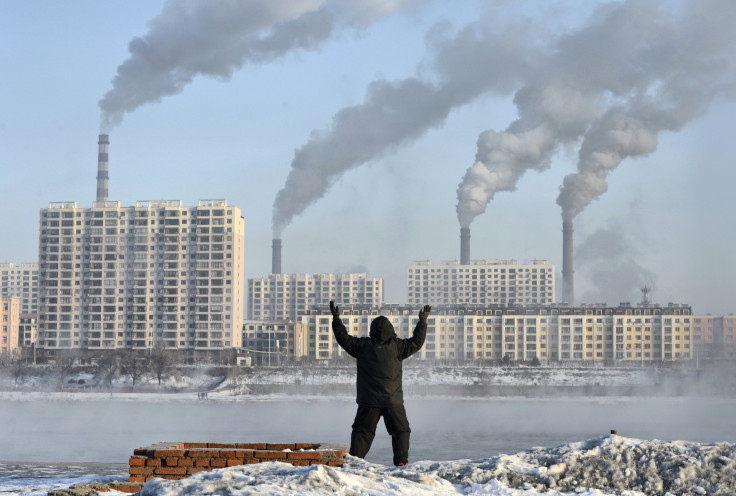China Air Pollution: US Expert Doubts Country Will Be Able To Curb Rampant Smog

A prominent U.S. environmental expert has raised doubts about China's ability to curb its rampant air pollution problem, despite recent reports that the country's clampdown against pollution was making some progress.
In an interview with the South China Morning Post, James Lents, who oversaw the internationally lauded program to curb air pollution in southern California, expressed concerns about a number of issues.
"[Los Angeles] developed a plan, we understood what the emissions were, what caused them and what would be the best ways to reduce them. I don't often see a plan like that for the [mainland] cities," Lents told the paper.
"They do have five-year plans where cities say 'we'll reduce this by a certain percentage, we'll close factories or limit car use' - which are good. But they don't put all these things together," he added.
He also cited a lack of enforcement personnel in China as a key factor behind lower levels of compliance with environmental regulations from industry and the public.
Lents comments came as figures released for the first half of 2015 found that China had succeeded in reducing the levels of air pollution in many of its cities, but that they were still far below international standards.
Average levels of PM2.5 -- airborne particulates small enough to deeply penetrate the lungs -- declined 16 percent in 189 cities that were ranked both this year and last, environmental group Greenpeace said in a press release, cited by AFP. Only 18 cities showed increases, it added, on the basis of local government air quality readings it compiled.
Environment ministry data, cited by Reuters, showed that nearly 75 percent of China's big cities failed to meet air quality standards in June, with air quality in the capital Beijing below standard almost 60 percent of the month. In addition, PM2.5 levels rose 11 percent compared to the same month last year.
China's Communist Party government, led by President Xi Jinping, has placed great emphasis on proving its legitimacy by addressing matters of public concern. As such, an anti-corruption crackdown has tamed the excesses of lavishly spending officials who were the source of much public ire, and efforts have been made to curb environmental pollution, which is also high on the list of public concerns.
The reliability of Chinese government pollution data is however, questionable. During last year's APEC summit, held in Beijing, Chinese authorities blocked data air pollution data from the U.S. embassy in Beijing from smartphone apps. The U.S. data consistently graded Beijing's air quality as more polluted than the official Chinese government figures.
Some activists however, appear to be convinced that progess is being made. Dong Liansai, Greenpeace East Asia energy and climate campaigner, told the Wall Street Journal that the bump in clean air doesn’t appear to be just a blip, citing the implementation of more aggressive government standards on emissions and efforts to shutter its dirtiest factories, as well as the government’s 2013 air pollution control plan.
© Copyright IBTimes 2024. All rights reserved.












